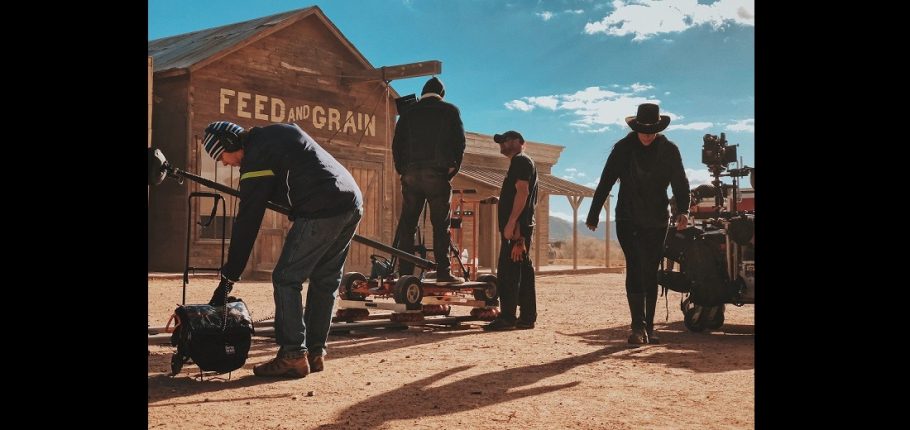
Can Being Too Indie Hurt Your Career?
Every aspiring filmmaker who’s waiting tables or driving warehouse trucks right now doesn’t want to do that forever. Naturally, they want to get paid for their work. They want those late nights and times of self-doubt and self-sacrifice to amount for something substantial and they want to make their mark.
When working towards the goal of being a successful filmmaker, people generally fall into two camps. Camp A wants to work on the big, expensive films and thereby prove that they’re an artistic commodity. Although that may sound shallow, a lot can be said for name-drop appeal. The people in Camp B are the opposite. They resist going the route of doing mainstream or high profile work as a way to build their clout. These creatives are often very driven by their own ideas and they simply want to create the work they’re seeing in their minds. Obviously, these’s a lot of good that can be said about these auteurs. Our most super famous filmmakers fall into this camp, Coppola, Spielberg, Lucas, etc.
But when indie directors choose to adhere to their own dictates at all costs, especially when commercial success is just on the horizon, they run the risk of making a movie people just don’t want to see. Without a producer or development checking your authority, it becomes possible to make a movie that just doesn’t connect with the humans who are supposed to watch it and feel the whole experience was worthwhile. At some point in their professional lives many creatives have to choose whether to do the passion projects or do more of the mainstream work. Afterall, when everything goes as planned, broader appeal means bigger audiences, bigger box offices, and greater reward and stability for the cast and crew.
The interesting and talented Shane Carruth is once director who could be called too indie for his own good. What he accomplished when he bursted onto the film scene was nothing short of laudable. He’d the sci-fi time travel movie Primer for just seven thousand dollars. He produced, wrote, scored, acted, and directed the film by himself. It went on to play at Sundance where it fast became a festival darling and was bought by one of Hollywood’s most prolific production companies. However, the movie didn’t get a wide release due to the stringent projection standards that Carruth had set on the project. He then spent the next 10 years of his life attempting to get his cinematic masterpiece A Topiary made. Split into two acts, the first half of the movie follows boys who find alien technology and the second half tells the story of a man obsessed with a mathematical equation. The film was also said to purportedly cost around twenty million dollars to make and Carruth was vehemently opposed to casting any known actors or bringing in any outside creative forces to help him realize his endeavor. And that’s not all, Carruth also wanted to create all the visual effects himself.
Now take a guess. Did the A Topiary ever get made?
Due to the fact that Carruth was basically as inflexible as anyone can be, no the film never got made. Whether you find yourself largely in Camp A or Camp B, it’s smart to learn from Carruth’s experience and remember that filmmaking always requires compromise and collaboration to varying degrees. It’s completly understandable, praiseworthy even, for you to believe in your vision. But, if you want to work, nay, to create in film, then you will always depend on a whole host of talented people to help you get there. Despite your “vision,” filmmaking will always and forever be a collaborative artform—period.
So word to the wise: Know your limits.
Know your sticking points. If the locale must remain a decrepit old log cabin back in the woods, stay true! And if the different ages and background of your two story leads have to stay as they are for the tension to remain taut and the premise come through, stay the course. But when compromises need to be made on things that aren’t sticking points, hear what your crew, the producers, and the production company has to say. Listen, shelve the ego and artistic vision, and give those ideas their due. Chances are, it isn’t easy for others to approach you with changes knowing the film is your brain child, so try, try, try to see things from their side. Then, go back to your point, consider it again, and make your choice.
Keep a Foot in Both Camps.
Striking the balance between commercial success and artistic integrity can be difficult. Some filmmakers find it so daunting they stay in one camp for the rest of their professional lives. The world of film and television production is so varied that it’s probably a shame to adopt such a closed mindset. Those who manage to find a way of playing in both camps often find the different experiences worth the effort and come away with new tips and tricks they can use on other productions. Having a foot in the commercially-minded filmmaking camp enables them to do a better job at executing their own unique “indie” visions and maybe even find broader appeal with bigger audiences.
A good example of someone who could be said to belong to both the pragmatic Camp A bunch and the uber-artists in Camp B is none other than Steven Soderbergh. He’s known for balancing his sometimes quirky artistic vision with strong story elements and casting, resulting in high profile blockbuster films like Ocean’s Eleven and Ocean’s Twelve. He’s one of a select few creators who can move from projects that have a massive amount of artistic ambition to films where it’s a star-studded event. And while you’re at it, check out the history of Christopher Nolan’s career too. He’s proof-positive that you don’t have to stay in one camp.
So can being too “indie” hurt your career?
If you mean to make a solid living in film, yes, being too indie can definitely hurt your chances of building a sustainable future for yourself. That being said, indie or independent film is the “stage” upon which writers, directors, and actors get to take risks, try out different approaches, and bring new visions, subjects, and subcultures to light. And as a beginning filmmaker, going indie can be a great way to build up your credits, your creative experience, and yes, it can launch your career!
And remember, if you really have something you need to say or want to show which doesn’t appeal to a broad audience, there’s absolutely nothing wrong with that. Directing and/or producing your own indie film or indie webseries just might be the right thing for where you’re at in your career. Just don’t forget the story, story, story. It really is the source of all good film, though by no means it is the only ingredient. So even if the next project on your slate is an indie, pursue those more commercially-minded projects when you can. Build up those connections and filmmaking chops wherever you find them. And when the chance arises to work for Soderbergh, Spielberg, Cameron or any of the greats, say Yes!
The 90s Indie Films You Need to Know
Shoot that Movie with a Smartphone! The Lowdown.
Low Budget Filmmaking Heroes



